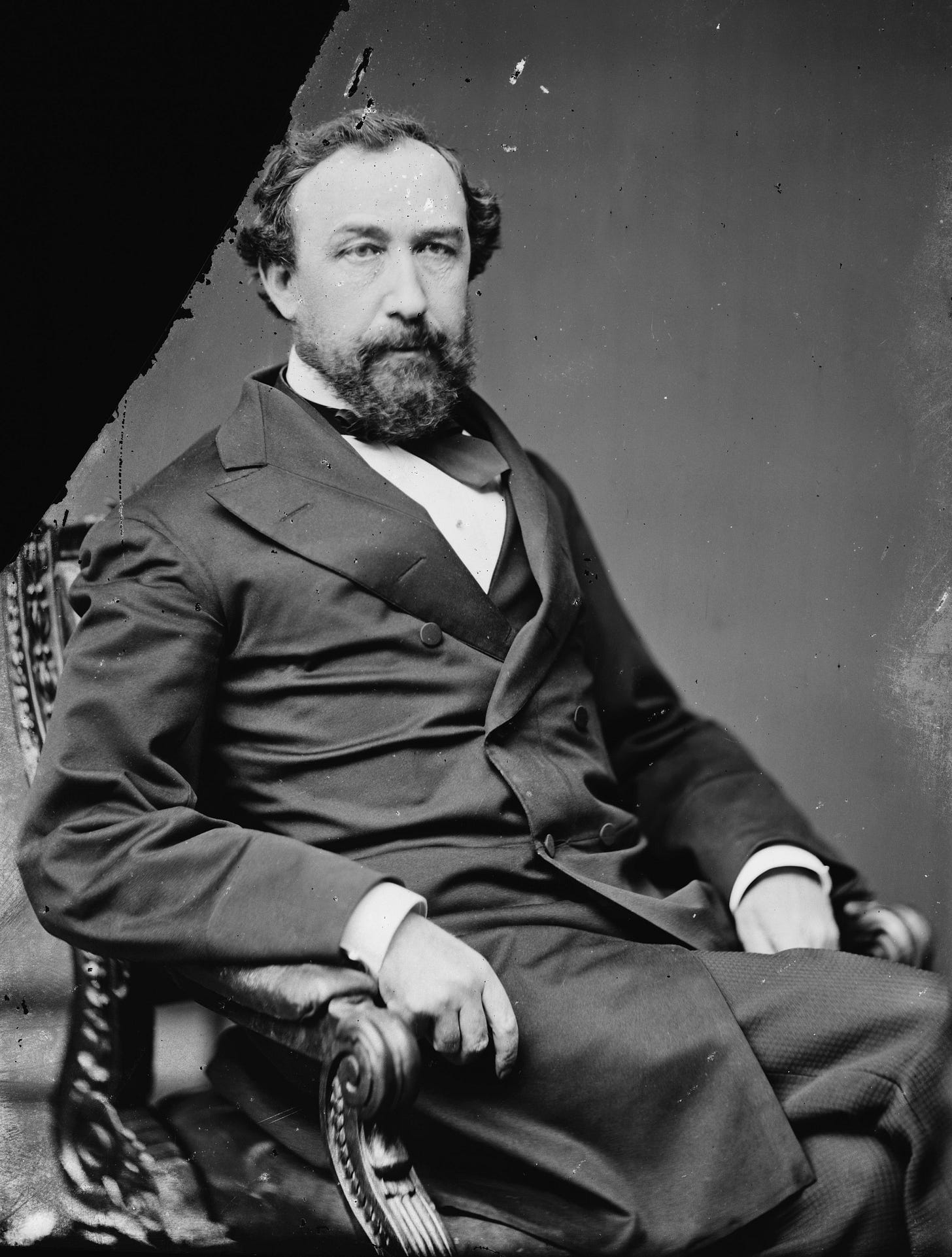CA Governor Series: Newton Booth, Part III
By opting out of his commitment to the Republican Party for four years as governor, Booth realized quickly that he had created a controversy. One group, led by Senator Philip A. Roach, proposed an amendment to the state constitution that a sitting governor should ineligible for the office of Senator during his elected tenure. While there wasn’t an immediate impact from this proposal, it was a factor in the eventual constitutional convention of 1878-1879.
During his final legislative session of 1873-1874, some of Booth’s priorities were acted upon, while he also used veto power to stop the movement of projects he opposed. The subsidy law for the railroads was repealed, but regulation of freights and fares was left to future administrations. Booth vetoed a bill to protect a white collar criminal who, upon returning from exile in South America, attempted dismiss his indictments through legislative action. Other vetoes were purely performative; for instance, he vetoed a bill that limited the hours drivers and conductors of street cars could only because he had already passed a law that limited work to eight hours a day.
Booth balanced a belief in limited government with a desire to use state capacity to solve pressing problems. Much of his focus on election integrity and restraining the rapacity of the railroad industry. His legislative reforms were few, but critical, in particular the adoption of new codes to interpret statutes.
During his time in the Senate, he also participated in the creation and adoption of a silver certificate. California is gold country, but with the discovery of Nevada’s Comstock Lode, which inundated the economy with silver. Up until 1873, the US operated under a bimetallic standard (gold and silver were both legal tender), until the Coinage Act which demonetized silver. That only lasted five years before it was repealed by the Bland–Allison Act. He also used his time in the senate to continue his fight railroads and monopoly power more broadly.
Booth would only serve one term in the Senate, serving from March 4, 1875, to March 3, 1881. After leaving office, Booth returned to his home in Sacramento where he would live and operate his wholesale business until 1892, when he married the widow of his former business partner, Mrs. Octavine Glover, and then died just five months later.


